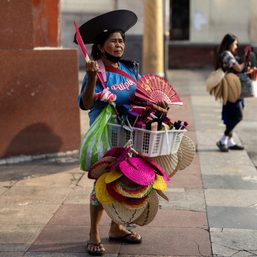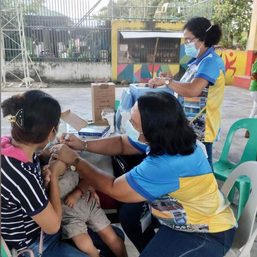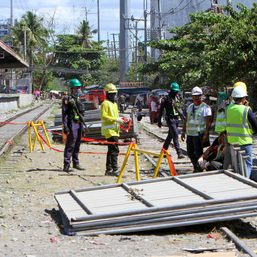SUMMARY
This is AI generated summarization, which may have errors. For context, always refer to the full article.
![[ANALYSIS] The COVID-19 B117 variant: Implications for the Philippines](https://www.rappler.com/tachyon/2021/01/B117-covid.jpg)
Last month, scientists in the United Kingdom reported that a new variant of COVID-19, now called B117, was spreading in England during their lockdown in November. The variant is basically the same COVID-19 virus that we have had to control for the past year. However, this novel variant has 23 changes to its genetic code.
These mutations alter the virus in small but important ways. Most significantly, a handful of these mutations have changed the Spike protein of the virus. The Spike protein is the “key” that the virus uses to unlock human cells so it can enter and infect people. The Spike protein is also the target for many of the vaccines that have been developed against COVID-19.
Thankfully, the B117 variant does not appear to be a deadlier virus. It does not kill more people than its COVID-19 viral cousins. However, there is growing evidence that B117 is between 50% to 70% more contagious than the other variants. It is not clear why this is so. It could be that the B117 variant is able to make more viruses in human patients. It could also be that the B117 variant is more efficient at infecting human patients because of the changes in the Spike protein. Remember that the Spike protein is the “key” that the virus uses to unlock and to enter human cells. It could be that the B117 variant has a better “key” to enter human cells than its cousins.
Where did the B117 variant come from? No one is sure, but one likely possibility is that this variant appeared in COVID-19 patients with weak immune systems that could not kill the virus quickly enough. The virus was able to keep mutating in their bodies for many weeks. Cancer patients on chemotherapy are often immune-compromised in this way.
Nonetheless, because it is more contagious than its cousins, the B117 variant will make pandemic management even more challenging than it already is. Once the B117 variant enters a country, it will slowly but surely replace the other COVID-19 variants in the population. We are already seeing this in the United Kingdom and in Denmark, where the variant is doubling in frequency about once a week. At this rate, it will take about a month before the B117 variant becomes responsible for 50% of all the COVID-19 cases in the country. Tragically, if this spread is not stopped quickly enough, the pandemic will experience explosive growth that will lead to large numbers of new cases and deaths. We have to do all that we can to prevent this from happening in the Philippines.
There are also reports that the B117 variant is more transmissible among children, which is why some British scientists are warning their government not to reopen schools after the Christmas holiday season.
There is no evidence that the B117 variant will be able to escape the COVID-19 vaccines. As a point of comparison, despite all its many variants, the measles virus has never been able to escape its vaccine in the last 50 years, while the flu virus which is more susceptible to mutations than the coronavirus still takes about 5 years to escape its vaccine. The new COVID-19 vaccines that are being produced now should be effective against the current SARS-CoV2 variants for at least the same number of years.
Is the B117 variant in the Philippines? At the moment, there is no genomic evidence that has confirmed the arrival of the variant in our country. However, since the B117 variant arrived in Singapore on December 6, 2020, two weeks before we banned travelers from the UK on December 22, 2020, we are certainly at high risk for the variant from any of the OFWs or balikbayans who returned from Europe in early December.
The DOH has reported that it will begin sequencing viral samples from swab tests obtained from travelers who have arrived from countries with the B117 variant to determine if they are carrying the virus. However, genome sequencing is not easy and it will take a while to implement this molecular approach in our country.
For now, the DOH, and especially the Philippine Red Cross, which is responsible for testing our returning OFWs, should consider using three-gene target COVID-19 PCR kits to test all international travelers. Three gene target COVID-19 PCR kits can detect the S-gene dropout signature that appears to be indicative of the B117 variant. Though this is not a fool-proof test for B117 – only genome sequencing can confirm the variant’s identify with certainty – it would be a relatively cheap and easy strategy to distinguish high-risk travelers from those who are low-risk.
Moreover, the government should continue to enforce a strict and mandatory 14-day quarantine for high-risk travelers to prevent the spread of the B117 variant to our islands. I am aware that this is expensive and inconvenient for many, but it is still significantly cheaper and less inconvenient than a return to a circuit-breaker MECQ lockdown in the NCR for two weeks in the event of a B117 surge.
Finally, in this new year, we should be more vigilant about our minimum health standards. Mask wearing, hand washing, and physical distancing remain our most important protections against the spread of any and all variants of the COVID-19 virus. – Rappler.com
Reverend Fr. Nicanor Austriaco is Visiting Professor of Biological Sciences at the University of Santo Tomas, and an OCTA Research Fellow.
Add a comment
How does this make you feel?




![[Free to Disagree] Sabwatan ng mga doktor at drug companies](https://www.rappler.com/tachyon/2024/04/tl-sabwatan-doktor-drug-companies-April-22-2024.jpg?resize=257%2C257&crop=292px%2C0px%2C720px%2C720px)

There are no comments yet. Add your comment to start the conversation.